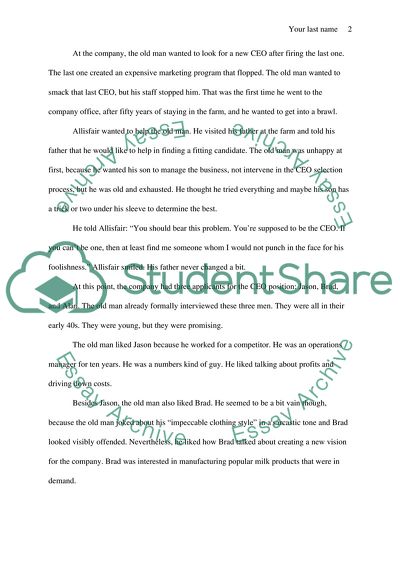Cite this document
(The Story about The Milk Factory Essay Example | Topics and Well Written Essays - 3500 words, n.d.)
The Story about The Milk Factory Essay Example | Topics and Well Written Essays - 3500 words. Retrieved from https://studentshare.org/literature/1873328-writing-a-short-story-fairytale-set-in-modern-times
The Story about The Milk Factory Essay Example | Topics and Well Written Essays - 3500 words. Retrieved from https://studentshare.org/literature/1873328-writing-a-short-story-fairytale-set-in-modern-times
(The Story about The Milk Factory Essay Example | Topics and Well Written Essays - 3500 Words)
The Story about The Milk Factory Essay Example | Topics and Well Written Essays - 3500 Words. https://studentshare.org/literature/1873328-writing-a-short-story-fairytale-set-in-modern-times.
The Story about The Milk Factory Essay Example | Topics and Well Written Essays - 3500 Words. https://studentshare.org/literature/1873328-writing-a-short-story-fairytale-set-in-modern-times.
“The Story about The Milk Factory Essay Example | Topics and Well Written Essays - 3500 Words”, n.d. https://studentshare.org/literature/1873328-writing-a-short-story-fairytale-set-in-modern-times.


